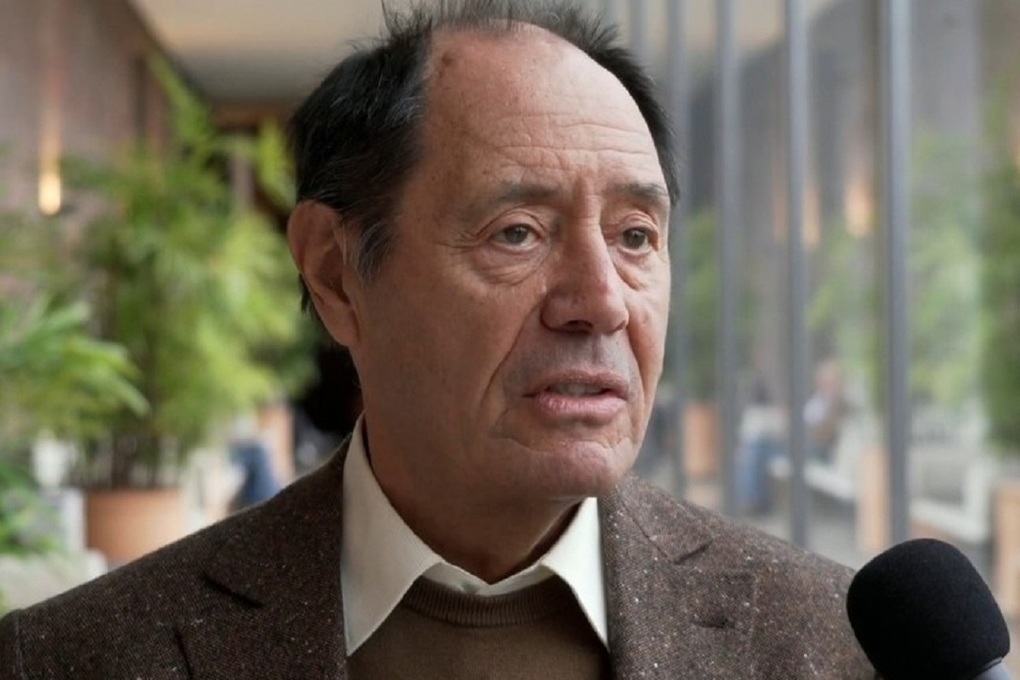The youngest son of Picasso died: what will happen to the legacy of the most expensive artist
[ad_1]

Pablo Picasso’s youngest son has died at the age of 76. Claude Ruiz Picasso, son of Picasso and the French artist Françoise Gilot, who also passed away this year at the age of 101, managed his father’s extremely valuable estate until recently.
Claude Ruiz Picasso, the youngest son of Spanish artist Pablo Picasso, has died in Switzerland at the age of 76, his lawyer said on Thursday.
Claude’s lawyer, Jean-Jacques Neuer, did not name the cause of death, The Guardian notes.
Claude was a photographer and filmmaker who also managed his father’s estate from 1989 until July of this year, when he passed responsibility on to his younger sister, Paloma.
Claude Picasso worked for almost a year as an assistant to the famous photographer Richard Avedon, as well as a photojournalist for Time Life, Vogue and the American magazine Saturday Review. In 2011, he was awarded France’s highest honour, the Légion d’honneur, for his work as a painter and court-appointed administrator of his father’s estate.
Picasso had four children, reminds The Guardian. Claude and Paloma were his children with the French artist Françoise Gilot, who died in June 2023 at the age of 101. His eldest son, Pavel, from his marriage to ballet dancer Olga Khokhlova, died in 1975. Maya, his daughter with French model Marie-Thérèse Walter, died in 2022.
Picasso broke off contact with Claude and Paloma after Gilot, who was the first woman to leave him, wrote a memoir about their life together. He tried to block the publication of her 1964 book, Life with Picasso.
In 1970, 22-year-old Claude sued France to be recognized as his father’s legitimate son and therefore his father’s heir. The court ruled in his and Paloma’s favor, and the siblings became Picasso’s heirs a year after his death in 1973.
The Picasso estate remains one of the richest dynasties in the art world. When Picasso died at the age of 91 in 1973, he left behind over 45,000 works, including 1,885 paintings, 1,228 sculptures, 7,089 drawings, 30,000 engravings, 150 sketchbooks and 3,222 ceramics. He also left millions in cash. Overall, the estate was valued at £650 million at the time.
“We would have had to rent the Empire State Building to house all the work,” Claude said when the inventory was completed.
Since Picasso did not leave a will, the division of his property took six years and led to bitter disagreements in the family. In the end, it was decided that the work would be divided between Claude, Paloma, Maya and his two grandsons, Marina and Bernard Ruiz-Picasso. Writer Deborah Trustman observed at the time that “Picasso’s web of heirs resembles one of [его] cubist constructions – wives, mistresses, legitimate and illegitimate children (his youngest was born 28 years later than his elder) and grandchildren – all strung on an axis like the skeleton of a figure with unsurpassed details.”
In 1989, Claude took over the Picasso estate, which dealt with copyright, reproduction and trademark issues, regularly taking legal action to combat counterfeiting and misuse. Representing one of the most “pirated” and copied artists in the world, the Picasso estate produced more and more official reproductions to prevent others from financially benefiting from the public’s interest in Picasso.
“I never expected or wanted to play such a role or have any influence on my father’s legacy,” Claude once told Picasso biographer John Richardson.
The family often disagreed over the use of the name and works of Picasso, notes The Guardian. In 1999, when Claude sold Picasso’s name and signature to Citroën to produce a hatchback named after the artist, his niece Marina publicly criticized him for disrespecting a “genius” who was “used to sell something as banal as a car”. Claude’s lawyer told The Guardian at the time that he “had every right to use the Picasso trademark.”
In 2018, Claude criticized the Picasso Museum in Paris for providing too much work, stating that some of the exhibitions featuring Picasso’s work were “nondescript and provided nothing more than an immersion in the magic of a great name.”
Claude is survived by his wife Sylvie Vautier and their two children, writes The Guardian.
[ad_2]
Source link






